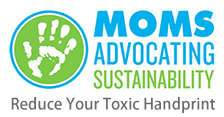MOMAS advocates at the state level for larger, systemic change regarding California’s invasive species pest management programs, including: (1) promotion of human health as a primary consideration when policy decisions are made about whether to use pesticides; (2) promoting sustainable agriculture techniques so that our state’s agriculture becomes more resilient and thus less vulnerable to pests when they arrive, and minimizes pest outbreaks; and (3) promoting the use of modern, cutting edge, independent science to guide policy decisions.
Example of this advocacy work includes:
Opposition to the Light Brown Apple Moth Program
In 2008, MOMAS was a key player in a successful effort to stop the state from repeatedly spraying untested pesticides from low-flying airplanes for a period of 3 – 10 years for a harmless moth. Despite no documented damage from the light brown apple moth, the state is continuing its efforts to pursue the apple moth program. MOMAS is a co-plaintiff in litigation against the state in an effort to put an end to this unnecessary and toxic program.
Opposition to the Statewide Pesticide Environmental Impact Report
- On December 24, 2014 the California Department of Food & Agriculture (CDFA) approved a statewide Pest Environmental Impact Report (PEIR). The PEIR provides advance approval for the state to spray pesticides in our communities and on our food when and where they want, for any insect they consider a threat, anywhere in the state, for years into the future, and the public’s ability to challenge these programs would be severely restricted or in many cases, completely eliminated.
- We filed a lawsuit in the Alameda Superior Court on January 22, 2015. The lawsuit outlines numerous ways the spray plan violates state environmental laws, including failure to notify the public of future pesticide spraying and failure to analyze the impacts of the pesticides on human and environmental health, including harm to infants and contamination of drinking water.
- We believe the pesticide-oriented approach to agriculture described in the PEIR is not based on current science, threatens human health and the health of critical pollinators, is burdensome to our farmers, weakens our agricultural system, and does not consider modern regenerative agricultural concepts that will make our agriculture more resilient to pests.
Providing Cutting Edge Science to Policy Makers Regarding Health Effects of Pesticides, Especially as they Effect Our Children.
MOMAS regularly meets with elected officials, state agency directors and their staff to present new research about health impacts from exposure to environmental toxins, and to provide recommendations for alternative policy approaches, and ideas & support for creative, attainable solutions.
